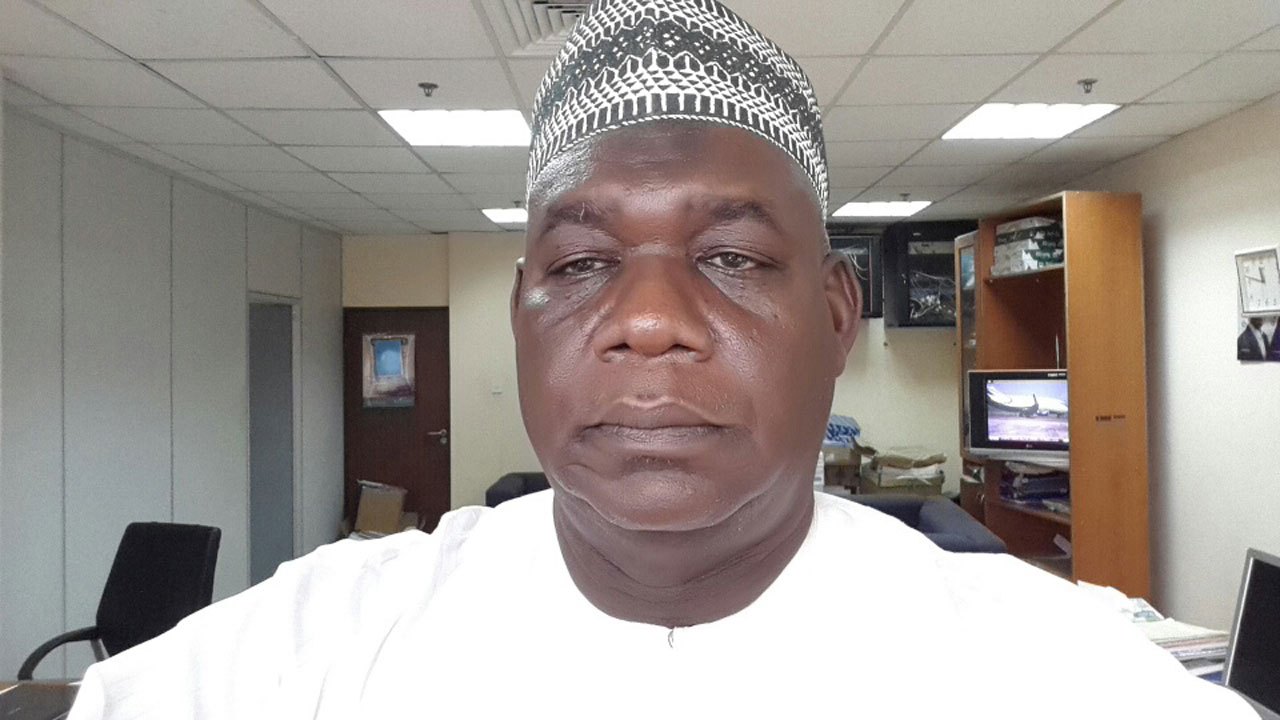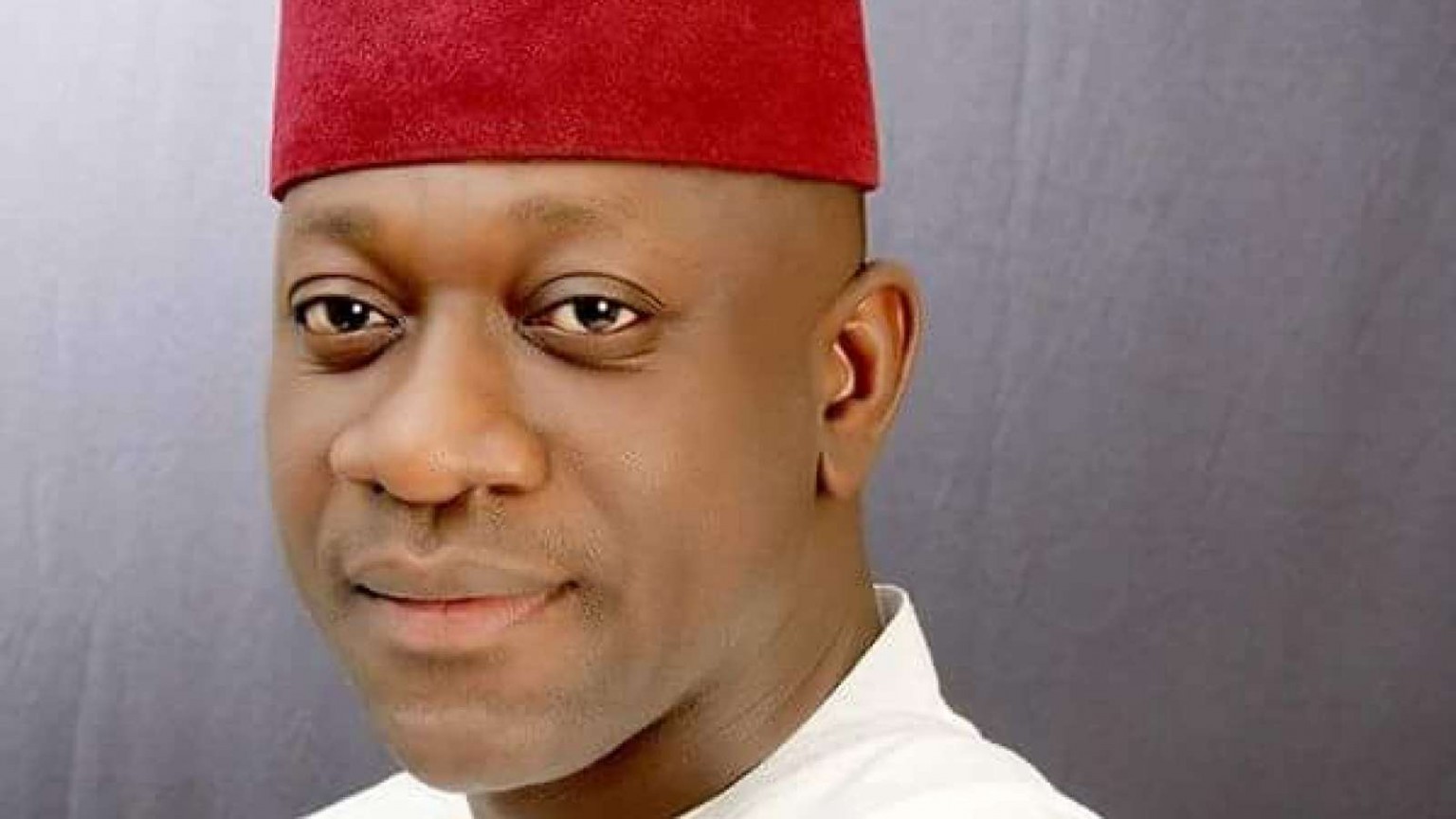Business
Agriculture makes a clearer path to economy — Erikume
Published
9 years agoon
By
Olu Emmanuel
Since Nigeria’s crude lost its sweetness in the international market, the effect on the economy has been quite overwhelming. To recover, the government must fall back on agriculture with a viable policy thrust and capital for short, medium and long term goals. Kenneth Erikume gives expert guide in this interview with ISAAC AGBER. Excerpts:
CONSIDERING the dwindling oil fortunes, agriculture appears to be the next option to salvage the crashing economy. How best can the government invest in agriculture vis-à-vis the proposed budget?
Because of innovation and industry of the average Nigerian, it is unlikely that the economy will crash. However, it is clear to everybody that the economy is currently challenged and an economic recovery plan is desperately needed to inject life into the system. Clearly, there are two sectors that can change the fortunes of Nigeria very quickly agriculture and solid minerals sector. Between the two sectors, there is one where you are sure that if you invest the money, it will provide the required returns in the short term with long term potential, and that is agriculture. The mining sector still has challenges in terms of proper exploratory activities, which require time and investment to identify viable deposits for production activity. This is not quite the same challenge of breeding livestock and planting of seeds. Even though agriculture has its own peculiar challenges, it would not require the same capital outlay and does not pose the same uncertainty for investors. Agriculture therefore stands as a clearer path to recovery in the short to medium term.
On the export side, we have to target areas where we already show signs of being able to produce competitively for the export market. Recurring exports in the top 15 list are tobacco and cigarettes, cocoa, sesame seeds, leather, shrimps and prawns, nuts.
Cocoa and sesame are also obvious areas where there is a clear export market and where we can increase our market share. Ivory Coast does upwards of $2.5 billion on Cocoa and there is no reason for Nigeria not to be able to match that sort of revenue as demand for chocolate and cocoa beverages continues to increase globally.
Unlike the 2015 budget that voted over N39.1 billion for the agricultural sector, the 2016 budget indicates no specific figures yet the president said he would drive revenue in the direction of agriculture in his agenda to diversify the economy. How realistic is this?
In the budget speech, there were essentially 2 comments on agriculture and solid minerals (i) subsidisation of funding of the sectors (ii) capital expenditure on infrastructure and security to support various industries including agriculture and solid minerals. Investment in agriculture cannot be kept at this broad level, there has to be a clear program of planned investment specific to the sector if the government is to achieve any quick wins. Once the programs are not clear, then they cannot realistically be achieved.
At the Federal level, investment must be made in Inter-State rail infrastructure for the easy movement of farm produce to the various places where they are required across the country (including the port for exports) thereby reducing the cost relating to the transportation margins and also wastage.
On subsidization, there has to be a figure attached to it and what it will be channeled to. There are already some subsidies in place which needs to be revisited for effectiveness such as the fertilizer subsidy (where there are challenges of the Federal Government owing suppliers and some of the states are unable to meet their 25% counterpart funding), tax free agricultural loans, VAT exemption on tractors, ploughs and agricultural implements purchased for agricultural purposes etc. The government needs to consider whether agricultural companies can be granted an indefinite income tax exemption under specific conditions such as pre-validation of the farms or a certain level of the produce being exported, and no other activity within the same entity to avoid abuse. Perhaps these are some of the issues being considered but they need to be clearly outlines in the government policy framework.
Based on specific information on the budget as presented, and the 2016 Appropriation Bill there is a proposal for N30 billion allocated to recurrent expenditure at the Federal Ministry of Agriculture and N47 billion proposed for capital expenditure.
Being aware of the fact that the agricultural sector has suffered neglect in the past 40 years irrespective of consistent budgetary allocations, what key indicators have you observed in the Buhari’s administration that the sector will be given due attention from 2016 and beyond?
Indicators by their nature are usually subjective and therefore will be based on my mere perception and may be wrong.
Apart from the specific mention of agriculture in the budget as a priority sector, there are 2 other indicators that come to mind. One of them is the appointment of Chief AuduOgbeh as the Minister of Agriculture and Rural Development. In terms of his background, he has a lot of experience and understanding of the structures of government and how it works and secondly he is a successful farmer with firsthand experience of the challenges in the sector. This firsthand experience is very important to focus on the key areas that require immediate attention rather than a mere administrator. Another indicator was the immediate announcement, after the budget speech, of a new substantive Managing Director for the Nigeria Incentive-Based Risk Sharing System for Agricultural Lending (NIRSAL Plc) and a new Executive Director (Technical). Both positions have been filled by people with tremendous experience both locally and internationally working at various levels of funding the agricultural value chain. At least, this sends a clear message that the channeling and disbursement of funds (if any) may be more deliberate and structured.
Between oil and agriculture, which can be more viable in job creation for the teeming Nigerian unemployed youths, giving statistical comparison with other African nations?
We cannot ignore the importance of oil and gas as so many people depend on this sector for employment and contracts in the urban areas and to a limited extent in the rural areas. I do not anticipate that agriculture will generate as much revenue for government as the oil and gas sector in a very long time. However, if we look at employment in the rural areas, which for me is more important, and overall contribution to GDP agriculture would be far ahead in terms of impact.
On comparisons, I would usually prefer a comparison with Kenya and South Africa as I consider Sub-Sahara Africa to be dominated by 3 key markets Nigeria in West Africa, Kenya in East Africa and South Africa in Southern Africa.
PwC is a corporate organization with global presence. One of your core objectives is to train youths in leadership and entrepreneurial skills. How have you been able to achieve this in Nigeria?
PwC Nigeria is essentially a Nigerian registered entity and owned by Nigerians. We are of course part of a global network of firms that have some core ideals. Our global approach to every market we find ourselves is to work with our clients and communities to build trust in society and solve important problems. There are many initiatives we undertake as a firm when we identify a gap.
For power, we hold the annual power and utilities roundtable where we bring stakeholders in the sector together to make recommendations on concerns identified. For mining, we organize a periodic mining forum. The last one was in collaboration with an organization called iPAD and several recommendations were made to the Ministry. After the introduction of IFRS, we organized free trainings for new graduates and the best candidates at the end of the training were employed directly into PwC. We have several programs where we collaborate with schools, Universities and NGOs on mentorship programs and leadership trainings on a wide variety of issues including strategy, accounting and taxation, and collaboration with the Nigeria Leadership Initiative where some of our partners are also members. Chess4change is our program to develop thinking skills using the game of Chess. We are currently working with about 10 secondary schools in Lagos. We have tutors for the students and there’s a grand slam where all the schools participate.
We also have internship programs for university students. I was recently involved in reviewing some of the work some of the interns did on doing business in Lagos and Akwa Ibom which was quite impressive.
What is your advice for the President, Muhammadu Buhari and the Minister of Agriculture, Chief Audu Ogbeh, on how they can leverage on youthful potentials to harness the enormous economic potentials in agriculture?
The Nigerian Youth is vibrant but usually ignored, especially in the rural areas. I would advise that a national program for farming is drawn up so that the middle class can consciously be sensitised and involved in agriculture probably at their various local governments. We need to come up with a program whereby agric business becomes a way of life in Nigeria and that sort of sensitization program must be driven by the Federal Government. In addition, the government needs to be clear on how certain non-perishable produce can be guaranteed purchase in the domestic and international market. The market will be encouraged on increasing output if there is a guaranteed market for the products and proper coordination and transportation/logistics to take the products to where it is required. The Minister needs to consider how best to introduce an intermediary in the market, similar to what the Nigeria Bulk Electricity Trader does with power that is produced. The concept of the commodities marketing board is controversial in some areas but I believe it can work if it can be modified such that the farmers can opt to sell their products to a direct market if they believe that they will get a better deal in the direct market.
You may like


NIRSAL secures fresh N4.5bn from three banks for farmers


AFDB to invest $24bn in agriculture in Africa – Adesina


Power, housing gets biggest share in 2016 capital budget


N16.3 trillion debt threatens 2016 budget Q4 performance


Nigerians implicate Buhari in padding scam


“APC will sanction disrespectful Jibrin,” says party spokesperson
Trending

 Comments and Issues2 days ago
Comments and Issues2 days agoAs Ariwoola takes the judiciary to the top of the grease pole

 Business6 days ago
Business6 days agoNMDPRA Chief faces backlash over comment on Dangote Refinery

 Business1 week ago
Business1 week agoGlobal cyber outage disrupts flights, Banks, telecoms, Media

 Business1 week ago
Business1 week agoKPMG criticizes FG’s 50% windfall tax, foresees legal disputes

 Business5 days ago
Business5 days agoZenith Bank retains position as Nigeria’s Tier-1 capital leader

 Education7 days ago
Education7 days agoJAMB reacts to allege age limit by ministry of education

 News6 days ago
News6 days agoPhilip Shaibu officially joins APC, dumps PDP

 Comments and Issues5 days ago
Comments and Issues5 days agoOnanuga and the Surprise from Joe Igbokwe



